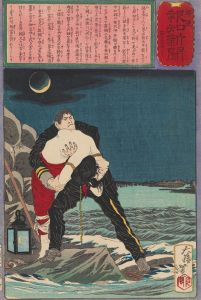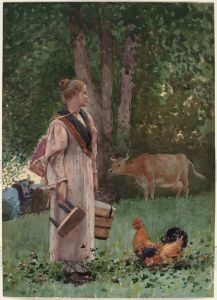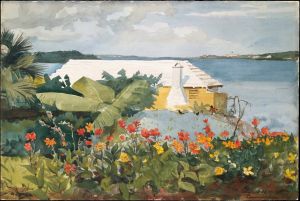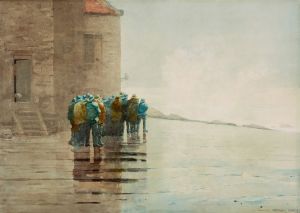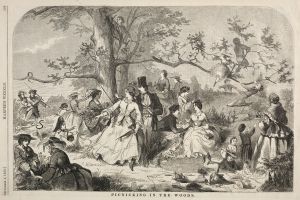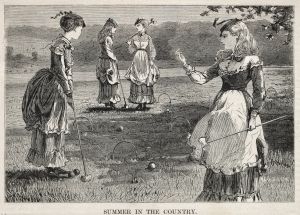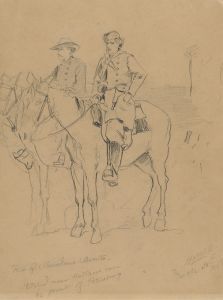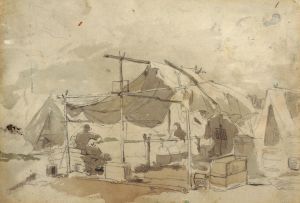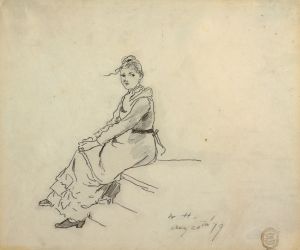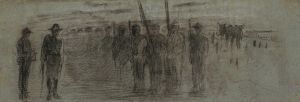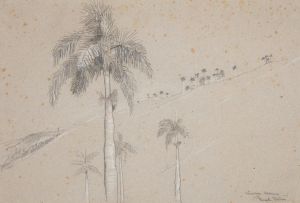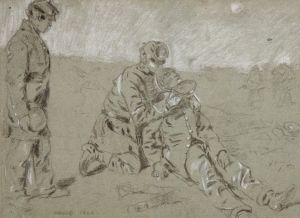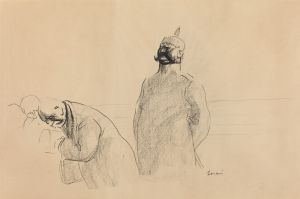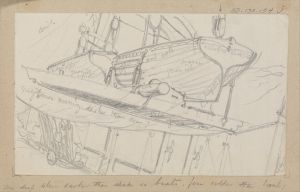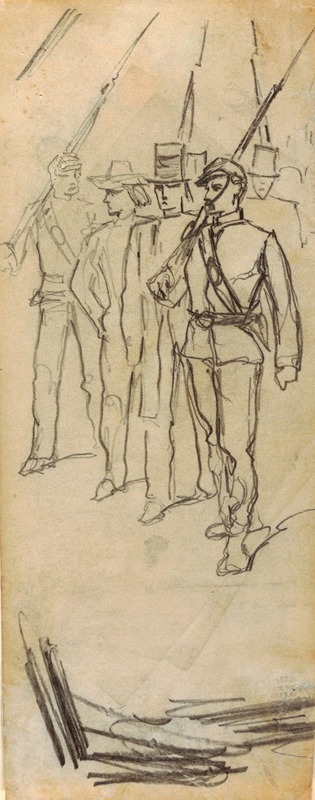
Soldiers Escorting Civilians
A hand-painted replica of Winslow Homer’s masterpiece Soldiers Escorting Civilians, meticulously crafted by professional artists to capture the true essence of the original. Each piece is created with museum-quality canvas and rare mineral pigments, carefully painted by experienced artists with delicate brushstrokes and rich, layered colors to perfectly recreate the texture of the original artwork. Unlike machine-printed reproductions, this hand-painted version brings the painting to life, infused with the artist’s emotions and skill in every stroke. Whether for personal collection or home decoration, it instantly elevates the artistic atmosphere of any space.
Winslow Homer, an American artist renowned for his realist and naturalist works, created "Soldiers Escorting Civilians" in 1866. This painting is one of his significant works that reflects the social and political climate of the United States during the Reconstruction Era following the Civil War. Homer, who worked as an illustrator for Harper's Weekly during the war, often depicted scenes that captured the human experiences and consequences of the conflict.
"Soldiers Escorting Civilians" portrays a group of Union soldiers accompanying civilians, likely freed African Americans, through a wooded area. The painting is notable for its somber and reflective tone, emphasizing the tension and uncertainty of the post-war period. The figures are rendered with a sense of realism, showcasing Homer's ability to convey emotion and narrative through his art. The composition highlights the soldiers' protective role, suggesting themes of freedom, security, and the challenges faced by newly emancipated individuals during Reconstruction.
The work is executed in oil on canvas, a medium Homer frequently used during this period. The muted color palette and careful attention to detail reflect the seriousness of the subject matter. While Homer is better known for his later marine scenes, this painting is an important example of his early work that engages directly with the social issues of his time.
"Soldiers Escorting Civilians" is housed in the Nelson-Atkins Museum of Art in Kansas City, Missouri. It remains a valuable piece for understanding Homer's artistic development and his engagement with the historical context of the Civil War and its aftermath. The painting serves as a poignant reminder of the struggles and transitions faced by individuals during one of the most transformative periods in American history.





